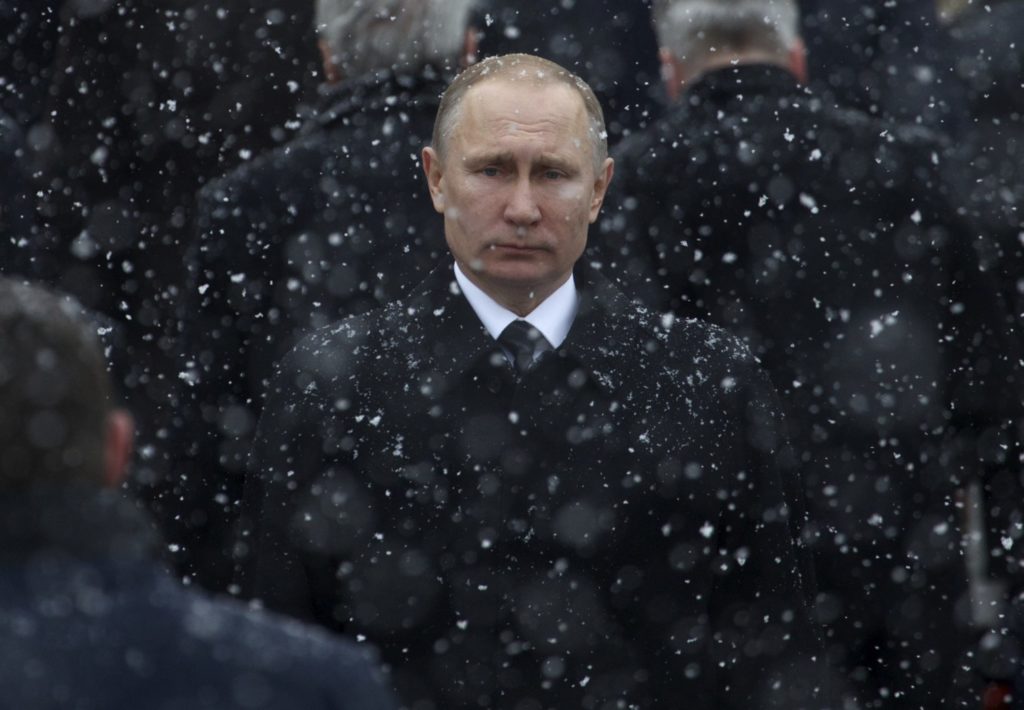
David Ignatius | The Washington Post | 23 febbraio 2017
One of the most startling allegations in a January report by U.S. intelligence agencies about Russian hacking was this sentence: “Russia has sought to influence elections across Europe.”
The Kremlin’s attempt to meddle in the 2016 U.S. presidential election is part of a much bigger tale of Russian covert action. This secret manipulation, if unchecked, could pose an “existential threat” to Western democracy. The Russians are masters of what they call “active measures” in the “information space.” Their intelligence services have been using “fake news” and stolen information for more than a century to try to manipulate Europe and the United States. What’s different now is that the power of digital technology allows intelligence agencies to alter the very landscape of fact.
On January the U.S. intelligence community warned: “We assess Moscow will apply lessons learned from its campaign aimed at the U.S. presidential election to future influence efforts in the United States and worldwide, including against U.S. allies and their election processes”. Let’s look at Germany, which faces parliamentary elections in September. The German government warned “there might be a Russian cyberattack on the federal election in Germany”. A report found a direct Russian role in attacks last August on the Bundestag and German political parties, which it attributed to malware known as APT 28, identified by the FBI as a Russian hacking tool.
France offers a similar opportunity for Russian political manipulation in its presidential election this spring. A Moscow-based bank loaned money to the party of right-wing and openly pro-Russia candidate Marine Le Pen in 2014, according to the Atlantic Council. Moreover Russia was apparently behind a devastating April 2015 hack against cable news channel TV5 Monde. Recently the French intelligence service briefed political parties about hacking threats. French journalists suspect a Kremlin hand in recent rumor-mongering about Emmanuel Macron, the leading anti-Russian candidate in the presidential election. In the meantime Russian propaganda outlets have published stories suggesting that Macron is gay.
So pay attention: The hacking issue isn’t a “ruse,” as Trump claimed. This is how the Russians try to subvert politics. They’re good at it. If the United States and its allies don’t resist, a post-West era may indeed be next.
Una delle più scioccanti dichiarazioni in un report emesso dall’intelligence Americana lo scorso gennaio sullo spionaggio informatico russo è stata: “la Russia ha voluto influenzare alcune elezioni in Europa”.
Il tentativo del Cremlino di interferire con le elezioni americane del 2016 è parte di un piano più grande dell’azione russa. Queste manipolazioni segrete, se non controllate, rischiano di porre una “minaccia esistenziale” alle democrazie occidentali. I russi sono maestri di ciò che chiamano “misure attive” nello “spazio di informazione”. I loro servizi segreti hanno utilizzato false notizie e informazioni rubate per più di un secolo per provare a manipolare l’Europa e gli USA. Oggi, la tecnologia digitale fornisce all’intelligence la possibilità di alterare in larga misura la realtà dei fatti.
Lo scorso gennaio l’intelligence americana ha avvisato che Mosca utilizzerà le lezioni imparate dalla sua azione di spionaggio alle presidenziali USA per influenzare in futuro gli Stati Uniti, gli alleati ed i loro processi elettorali. Guardando alla Germania che si prepara alle elezioni del prossimo settembre, ad esempio, il Governo tedesco ha dichiarato che potrebbe avvenire un attacco cibernetico per mano russa. Un report ha parlato di un ruolo diretto della Russia negli attacchi informatici contro il Bundestag ed i partiti tedeschi dello scorso agosto, perpetrati con il malware APT 28, identificato dall’FBI come uno strumento russo.
Anche la Francia potrebbe offrire loro simili opportunità nelle prossime elezioni in primavera. Secondo l’Atlantic Council, nel 2014 una banca di Mosca aveva finanziato il partito di Marine Le Pen, candidata di destra e filo-russa. Inoltre gli attacchi informatici del 2015 diretti contro TV5 Monde sembrano essere stati avanzati da hacker russi e di recente l’intelligence francese ha avvertito i partiti politici del rischio di minacce informatiche. I giornalisti francesi sostengono che ci sia la mano del Cremlino dietro i rumors diretti contro Emmanuel Macron, il candidato “anti-russo” alle elezioni francesi, ed i media russi hanno recentemente pubblicato alcuni articoli ipotizzando che Macron sia gay.
C’è quindi da prestare attenzione: l’hacking russo non è uno “stratagemma” come ha detto Trump, ma è il modo in cui i russi provano a sovvertire la politica. Sono bravi in questo. Se gli USA e i suoi alleati non resistono, potrebbe essere prossimo l’avvento di un’era post-occidentale.
Traduzione e sintesi di Lorenzo Salvati
